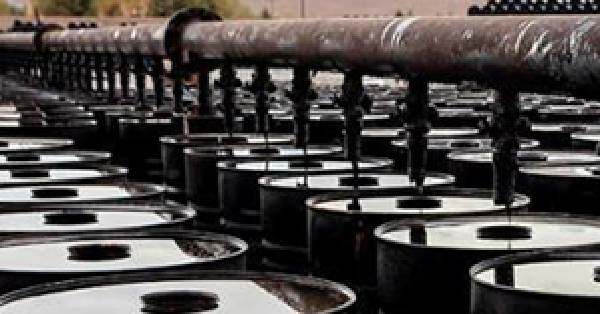Opaque transfers of Russian oil at sea more than tripled in the second quarter of 2023, according to an S&P Global analysis, suggesting Russian turned to shadowy tanker operations to sidestep an EU embargo and the G7’s price caps on its oil exports.
At least 47 million barrels of Russian crude and oil products were transferred by vessels with a record of turning off their location transponders in April-June, compared with 15 million barrels in the first quarter, S&P Global Market Intelligence and Commodity Insights data suggests.
In addition, the analysis based on S&P Global data finds 394 dark ship-to-ship transfers in Russia’s Exclusive Economic Zone during the second quarter, up from 266 in January-March. The 48% spike in shadowy practice came as an EU embargo and the G7’s price caps on Russian oil products took effect on Feb. 5. Similar restrictions were imposed on Russian crude Dec. 5.
As the West’s sanctions are designed to hit Russia’s war chest against Ukraine, Elisabeth Braw, a senior fellow at the think tank American Enterprise Institute, suggested Russia has strong motives to disguise its trade flows.
“Generally speaking, Russia doesn’t want Western countries to know what sort of commercial activity is up to them,” Braw told S&P Global. “It’s very hard to hide completely, but they are raising the hurdle by having the ships turn off AIS [automatic identification system].”
The West and its allies need to understand Russia’s trade dependencies to design effective sanctions, so “the less the global community knows, the better it is for Russia,” Braw said.
Based on the price cap regimes, maritime and financial services firms subject to G7 and EU jurisdictions cannot facilitate seaborne Russian oil trades if crude is sold above $60/b, premium products above $100/b and others above $45/b.
While Russian cargoes were generally sold at below the caps during the second quarter, Blackstone Compliance Services’ director, David Tannenbaum, said labeling Russian oil as barrels of other origins would make commercial transactions easier.
“The coverage goes beyond just ship managers and charterers… It goes down to financial services as well as commodity brokers,” Tannenbaum said. “There are also reputational risks as well.”
Ship tracks
Of the 394 dark STS operations in Russia’s EEZ last quarter, 305 were involved with a ship that previously called at a Russian port while 287 with a vessel destined for one, the S&P Global analysis found.
In comparison, 128 of the 266 operations in the first quarter were associated with a ship that last called in Russia and 120 were linked to a ship sailing to the country.
A large number of Russia-associated dark STS were apparently carried out by shuttle or feeder ships operating out of Russian ports, which might be transferring their barrels to larger tankers for shipments to Europe and beyond, S&P Global’s trade finance director, Byron McKinney, suggested.
“Disguising the origin could allow them to sell oil to countries that have banned Russian imports entirely,” risk consultancy Windward told S&P Global in an email.
“While the volume decreased a bit, Russian oil is still making its way to Europe regardless of imposed sanctions.”
Russia has had to sell its oil at discounts to competing barrels in international markets since its invasion of Ukraine, as shown by the wider price differential of the country’s main crude grade, Urals, to Dated Brent.
Tannenbaum said camouflaged Russian barrels could be sold at above price caps to Asia while allowing their traders to continue accessing Western maritime and financial services, not least marine insurance — an industry that European and American players dominate.
The S&P Global analysis finds 96 ships with a total capacity of 4.5 million dwt were engaged in clandestine oil transfers in Russia’s EEZ during the second quarter, including 43 ships covered by the London-based International Group of P&I Clubs, whose members provide third-party liability cover for 90% of the world’s ocean-going tonnage.
In the first quarter, 88 ships with 4.3 million dwt carried out such operations, of which 42 were insured by the IG.
“I don’t think that the primary purpose… is to export to the EU,” Tannenbaum said. “It is to be able to sidestep the caps.”
Age issues
Meanwhile, the average age of tankers in dark STS in Russia’s EEZ reached 23 years in April-June, up from 18 years in the previous quarter, according to S&P Global data.
The development came as emerging tanker operators soaked up many vintage ships in secondhand markets over recent quarters, in an attempt to take advantage of their lower costs and premiums in sanctions trades, analysts have said.
“Despite their age and, at times, questionable safety records, these older ships have experienced a remarkable surge in demand within a relatively short span of time,” said Fotios Katsoulas, lead analyst for tankers at S&P Global.
“Economic incentives can outweigh concerns about safety and compliance with international regulations.”
Globally, S&P Global records 615 dark STS transfers in April-June, up from 524 in the first quarter and 292 during the same period of last year.
To address safety concerns amid the risking number of risky operations, the International Maritime Organization has said flag and port states should tighten the enforcement of its regulations on STS and dark operations, which do not allow vessel operators to switch off AIS transmission simply to hide the cargo origin.
The EU has also banned tankers suspected of circumventing sanctions via dark activities and oil transfers at sea from its ports, as part of the 11th sanctions package unveiled in June.
Maersk Tankers, the Danish operator that saw one of its ships denied entry into Tarragona by Spanish authorities for allegedly transporting Russia-linked oil products in February, said “the situation is complex and evolving fast.”
“We are adjusting our procedures on an ongoing basis to ensure we are complying with the sanctions,” the company said in an email.
Source: Platts









































